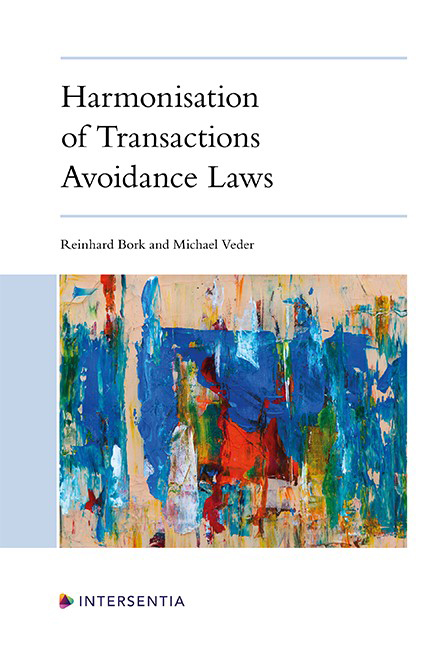Ireland
Published online by Cambridge University Press: 26 May 2022
Summary
A. INSOLVENCY LAW OF IRELAND
Irish insolvency provisions, including the anti-avoidance measures, are included in a consolidated company law code, the Companies Act 2014 (as amended). This code is divided into Parts dealing with liquidations, examinerships (preventive restructuring), and schemes of arrangement. The anti-avoidance provisions are contained in Part 9 dedicated to liquidations – Winding Up – but can apply to examinership proceedings set out in Part 10 of the same legislation. These provisions apply to transactions entered into by individuals under the Bankruptcy Act 1988 as amended by the Personal Insolvency Act 2012.
The Companies Act 2014 (as amended by inter alia of particular relevance to the subject matter the Companies (Miscellaneous Provisions) (Covid-19) Act 2020 and the Companies (Rescue Process for Small and Micro Enterprises) Act 2021) consolidated and reformed previous legislation and therefore where there are no significant differences in terminology or wording from one enactment to the other, case law decided in relation to previous provisions will apply in subsequent cases. Also, many statutory provisions in common law jurisdictions are themselves refinements of the old principles of common law. Therefore, decisions of courts in other jurisdictions with similar provisions will be of persuasive authority. This applies particularly to case law emanating from England and Wales and to a lesser extent, but similarly, to case law emanating from Australia and New Zealand.
As well as the provisions in the Companies Act 2014, there are also a number of common law principles, for example the pari passu principle, and in this context a general anti-deprivation rule. This latter rule has received a great deal of attention in recent years.
B. SCOPE
Transactional avoidance law is well established as a set of principles in Irish law. The Model Law is less stringent in terms of look-back periods than some aspects of Irish law and is also not as broad in terms of requiring intention, whereas a particular Irish provision focuses on the effect of the transaction rather than the intention or knowledge of the parties. It should be noted that these provisions are currently being reviewed by the Company Law Review Group in Ireland (www.clrg.org) through a subcommittee chaired by Professor Irene Lynch Fannon (co-author of the Irish contribution).
- Type
- Chapter
- Information
- Harmonisation of Transactions Avoidance Laws , pp. 417 - 420Publisher: IntersentiaPrint publication year: 2022



